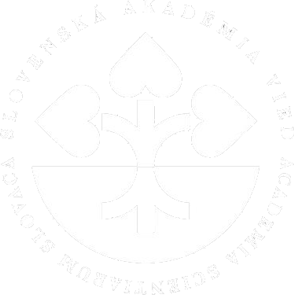Laboratory of Bioinformatics
The Laboratory of Bioinformatics at BRC provides professional bioinformatics analysis and consulting to support various research activities. We develop and apply computational tools and methods for biological and biomedical research data including organization, analysis and visualization of the genomics data. The laboratory maintains automated data processing pipelines for high-throughput data investigation, such as variant calling, expression analysis, or microbiome analysis. We develop custom solutions to assist scientists with data analysis and its biological interpretation. As part of our educational activities, we provide training and consultations at bioinformatics courses. The laboratory offers service to researchers both within and outside BRC on both grant-funded and collaboration projects for analysis of large-scale biological datasets produced by next-generation sequencing (NGS) technologies.
Software methods and tools
Our custom-made workflow pipelines based on open source, such as Toil (Python) or Chipster, combined with Genome analysis toolkit (GATK) and Rscript, allow us to provide reproducible and scalable data analyses with a quick turnout. Detailed downstream analysis of the results and assistance with their interpretation can be provided upon individual requests. If your experiment requires a specialized and tailored custom software or pipeline, we can help with its implementation and development. We also develop parallel bioinformatics programs in C/C++ and MPI for supercomputers as well as professional bioinformatics applications with rich interface.
We can provide training for the usage of our standard pipelines in both Linux and OSX (Apple) environment, as well as the friendly graphical interface of our Chipster server. We closely collaborate with Principal Investigators, researchers and graduate students on their projects and help to get the most out of their data.
Laboratory owns powerful server with 80 CPUs to perform automated primary and secondary sequence analysis of samples for small pilot projects, which can be then scaled up to HPC (high performance computing) supercomputers.
Services provided
Bioinformatics laboratory provides the following data analysis solutions:
– Gene expression studies (RNA-Seq, smallRNA-Seq, microarrays)
– Single- and multi-nucleotide DNA variant identification (SNV/InDel) and copy-number variation (CNV) analysis
– Microbiome analysis (MICCA, DADA2, Microbiome-Analyst)
– Genome and transcriptom assembly
– Customized and project-tailored workflows and pipelines (Chipster, Toil)
– Help with genome-wide association studies (GWAS) analysis and workflows for assessment of polygenic risk scores based on sets of SNPs with known effects
Additional services
– Downstream bioinformatics support, statistical analysis and creation of publication-ready visualization
– Teaching, training and consultation in high-throughput bioinformatics, experimental design and statistics
– Access to bioinformatics software and computational resources

Ing. Miloslav Karhánek, PhD.
Head of Bioinformatics Laboratory
At the BRC SAS, Dr. Karhánek is developing and performing genomic analysis of large-scale sequencing and genotyping data deploying open source tools and pipelines like GATK, Chipster, SnpEff, Annovar, Toil and many others. He recently contributed with bioinformatics work to several publications involving gut microbiome analysis (1), miRNA discrimination in endometrial carcinoma (2, 3) and statistical or genomics analysis (4, 5) and based on long term collaboration with NASA scientists, mutational analysis in mice on space station (6). He is responsible for bioinformatics work on several state projects (APVV, OBEZITA, BIOFORD).
Recent publications:
- Tomova A, Soltys K, Kemenyova P, Karhanek M, Babinska K. The Influence of Food Intake Specificity in Children with Autism on Gut Microbiota. International Journal Of Molecular Sciences 2020, Volume 21, Issue 8, Article 2797.
- Kalinkova L, Kajo K, Karhanek M, Wachsmannova L, Suran P, Zmetakova I, Fridrichova Ivana. Discriminating miRNA Profiles between Endometrioid Well- and Poorly-Differentiated Tumours and Endometrioid and Serous Subtypes of Endometrial Cancers. International Journal Of Molecular Sciences 2020, Volume 21, Issue 17, Article 6071.
- Fridrichova I, Kalinkova L, Karhanek M, Smolkova B, Machalekova K, Wachsmannova L, Nikolaieva, Nataliia; Kajo, Karol. International Journal Of Molecular Sciences 2020, Volume 22, Issue 1, Article 127.
- Kovanicova Z, Karhanek Miloslav, Kurdiova T, Balaz M, Wolfrum Ch, Ukropcova B, Ukropec J. Metabolomic Analysis Reveals Changes in Plasma Metabolites in Response to Acute Cold Stress and Their Relationships to Metabolic Health in Cold-Acclimatized Humans. Metabolites 2021, Volume 11, Issue 9, Article 619.
- Pavlenkova Z, Varga L, Borecka S, Karhanek M, Huckova M, Skopkova M, Profant M, Gasperikova D. Comprehensive molecular-genetic analysis of mid-frequency sensorineural hearing loss. Scientific Reports 2020, 11 (1), 1-11.
- Stolc V and Karhanek M, Freund F, Griko Y, Loftus DJ, Ohayon MM., Health Risks of Hypermutation in Mice on the International Space Station. Available at SSRN: https://ssrn.com/abstract=4102633 or http://dx.doi.org/10.2139/ssrn.4102633, 2022.






